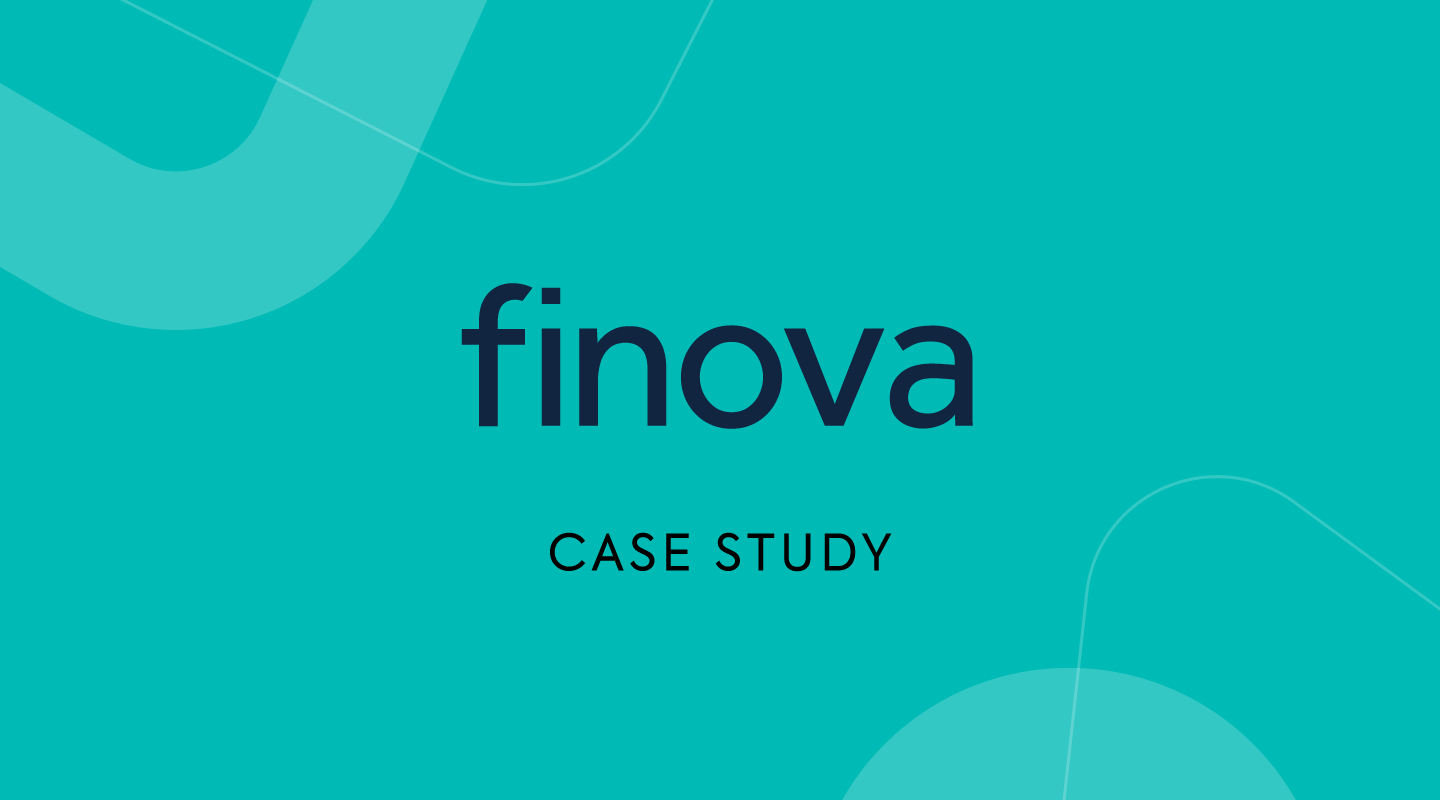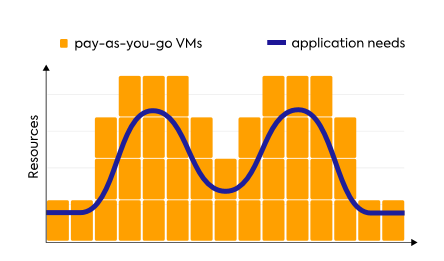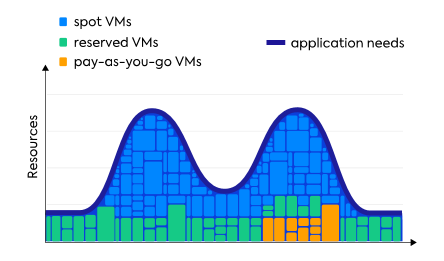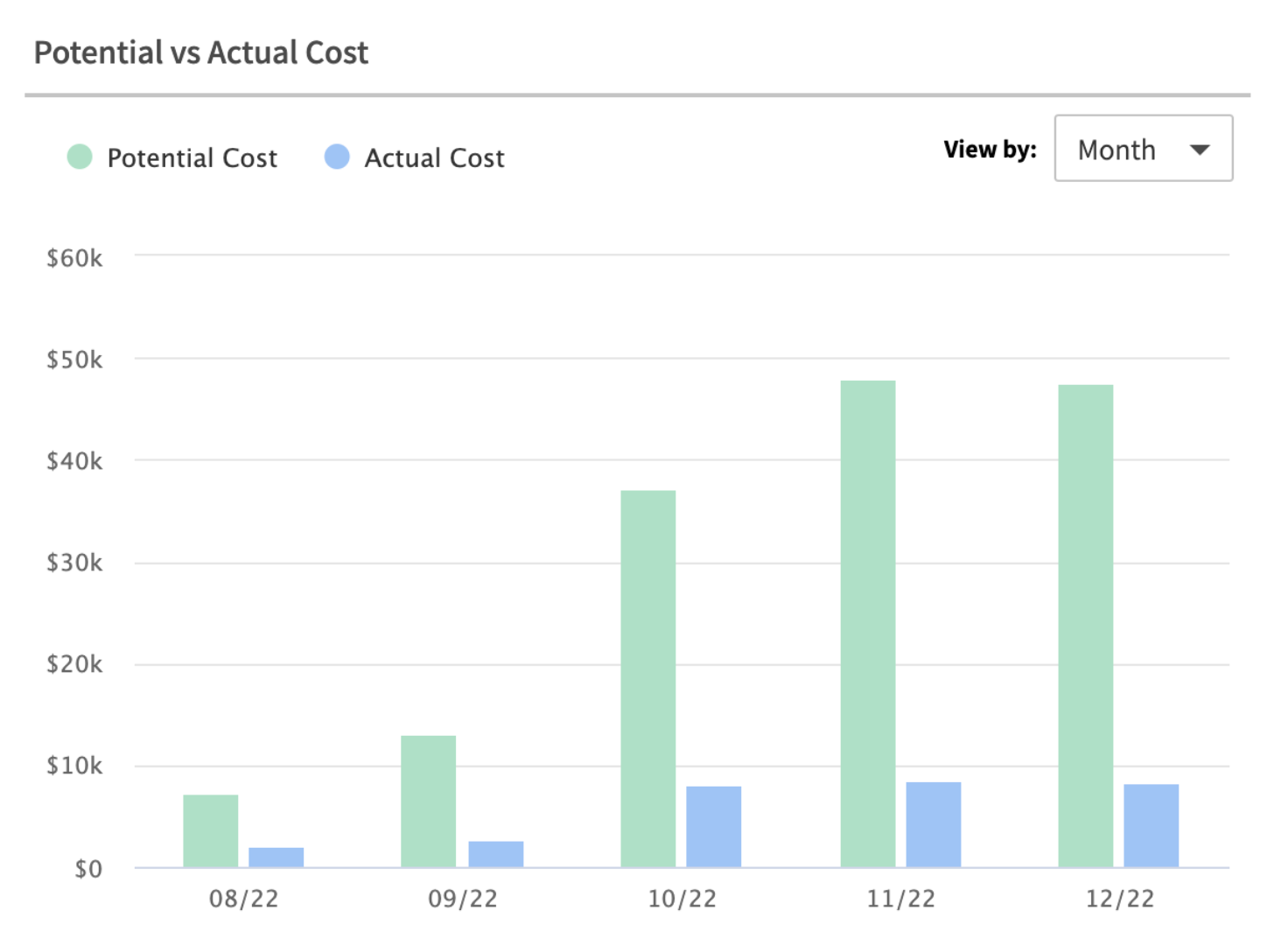
Executive summary
- Using Spot’s Elastigroup, finova reduces Azure compute spend for their internal development and testing environment by almost 70%.
- finova’s stateful workloads now run on Azure spot VMs, delivering the same performance and reliability as previously used pay-as-you-go VMs.
- finova now has visibility into cloud spend by individual team, has successfully implemented cost accountability, and can now make informed decisions about future cloud budget allocation.
- finova now plans to roll out this successful cloud optimization model to some of their other Azure environments, which are four times larger than their development and test environment.
- Cost savings enable finova to focus on delivering a more competitive product offering to the very demanding financial industry.
finova overview and challenges
finova is the leading mortgage and savings technology provider in the UK, with more than 200 financial institutes using their mortgage platform. Their brokerage solution has helped more than 3,000 brokers, while their core banking platform serves around 60 lenders. finova’s customer portfolio includes global clients like Investec, Santander, Metro Bank, and Aldermore.
finova relies on Microsoft Azure as their primary cloud service provider. They have one estate running development and testing, and another for production.
While finova was satisfied with the Azure cloud platform’s technical capabilities for their single-VM workloads, they faced challenges with overspending and mismanagement of their cloud infrastructure. finova’s annual compute spend on their development, test, and production environments exceeded £1M.
Overspending on Azure VMs
At any given time, finova’s development team is running hundreds of on-demand Azure VMs. To prevent overprovisioning, or interruptions to development operations, finova relied on Azure’s pay-as-you-go cost model for VMs.
finova knew it could save a great deal using Azure spot VMs, which offer excess cloud capacity at 90% discount. However, the trade-off is that that these instances can become unavailable without any notice. Therefore, without proper guardrails in place, running critical workloads on these low-cost resources is highly risky — a risk finova didn’t want to take with their client environments.
But as finova grew, senior management became more concerned about the increasing cloud costs and sought new ways to keep track of spending and resource requirements.
finova staff struggled to understand which instances could be better utilized to improve the overall cloud consumption within the Azure portal. While Azure provided some reports, they were limited in actionable recommendations.
Therefore, after a few years of rapid growth and doubling their customer base, finova sought a solution to mitigate their ever-increasing compute costs, make infrastructure management easier, and achieve greater scalability.
The disruptive nature of the fintech sector, however, requires engineering buy-in for any infrastructure-related software investment. Therefore, to reduce the compute bill, engineering needed to be on board with this FinOps initiative. And for the engineering team to support cost reduction and accountability, they required any actions taken must also increase productivity through more compute power. The engineering team wanted to achieve greater business impact with the same number of resources, at a lower cost.
Furthermore, given the stringent requirements of the finova platform, any solution selected must be enterprise-grade and SLA-backed.
Manual optimization tactics were not enough
Richard Marsh, finova’s director of operations, led an initiative to assess the sprawling cloud environments and reduce the number of VMs, compute use hours, and developers’ unsupervised ability to instantiate and scale up more servers.
This initiative reduced finova’s VM count to just over 100, down from 1,200. With that initial success, finova then focused on minimizing the cost of these VMs. This, however, required a shift in finova’s compute consumption model, for which finova needed a solid partner.
Maximizing savings with Spot
finova has a longstanding relationship with Crayon, a UK-based Microsoft Cloud Solutions Provider (CSP). A proud Microsoft Solutions Partner and Managed Service Provider (MSP), Crayon assists clients with services to plan, right size, optimize, manage, and innovate their IT estates throughout the entire lifecycle. Crayon set out to find a solution for finova that balances budget optimization with productivity enhancement and infrastructure reliability, and they recommended Spot’s Elastigroup product.
Crayon suggested that finova deploy Elastigroup into their development and test environment first, given that this environment was one of finova’s main sources of compute spend. Designed to support a single-VM use case, Elastigroup AI/ML-driven automation enables stateful workloads to run on Azure spot VMs with the reliability of pay-as-you-go VMs—which are 90% cheaper than the pay-as-you-go option finova previously used.
“Regardless of whether you are a developer, tester, or engineer, having consistent environments and stable compute levels are important for us, and we achieved that with Elastigroup,” explained Marsh.
Typically, spot VMs are recommended for scaling stateless workloads. However, Elastigroup’s support for stateful nodes provides additional value by enabling Azure’s spot VMs to support data and networking persistence (“state”) too. This guarantees workload continuity by automatically replacing an evicted spot VM with a new one.
Elastigroup’s automated fallback options further ensure that a stateful workload persists even if a spot VM is temporarily unavailable. Workloads will automatically fall back to pay-as-you-go VMs, while Elastigroup automatically monitors relevant spot VM markets and automatically reinstates spot VMs as soon as they become available.
“Spot’s Elastigroup looked too good to be true, but we were convinced once we understood how the solution worked in our environment,” says Marsh.
Being early adopters of Elastigroup’s stateful node support, finova provided valuable design input to Spot. “Working with the Spot team was a very open and collaborative experience,” says Marsh. “The team took our requests and very quickly came back with a proof of concept for us to test. Spot has a very rapid development team — unlike any other software vendor I have ever interacted with.”
Further, Spot’s commitment to finova’s success was evident through the risk-free pricing model, which made procurement an easy decision.
70% savings in Azure cloud spend
Implementing Spot’s Elastigroup as a FinOps solution saved finova nearly 70% of their annualized Azure compute spend for their development and test environment, while keeping the environment consistent and reliable.
These savings were achieved in part through Elastigroup’s fallback capabilities, which helped maintain a 98.5% coverage of spot VMs compared with 0% previously. This freed up a considerable amount of budget that is now invested in product and infrastructure innovation.
“In practice, Azure compute cannot be optimized without a third-party solution — let alone stateful single VM workloads like ours. With Elastigroup, we exceeded our extremely ambitious savings target of 25% in just two months — further than we ever thought was possible,” comments Marsh.
Complete visibility and intelligent recommendations
Elastigroup provides finova with smart recommendations on how to optimize their compute resources to leverage Azure cloud to the fullest. Elastigroup also provides end-to-end visibility into all resources across finova’s environment.
“With Spot, we’re able to see the underlying compute that’s being used, translate that into development costs for each team, and then either justify the costs or trim down certain parts of the compute,” Marsh says.
Greater accountability through FinOps
Through the Elastigroup console, developers can see how many VMs they are using versus the capacity they need. This has enabled finova’s engineering teams to understand, justify, and streamline their compute spend – paving the way to implementing a FinOps culture across the organization.
“Developers want as much compute power as they can have,” Marsh explains. “Elastigroup allows us to offer developers more compute power at less cost for their projects. This makes developers very happy and allows us to test a wider range of scenarios during the QA phase.”
Accelerated development through easy scalability
With Elastigroup, finova’s developers can now spin up multiple powerful instances concurrently for the same budget they had before. This gives them the opportunity to quickly test out innovative capabilities by easily scaling infrastructure when needed, without hampering the product lifecycle.
“The speed of our development has increased thanks to Elastigroup. We can have more instances, or more powerful instances, with controlled costs. This gives us more confidence and benefits our clients. It’s a win-win,” added Marsh.
The way ahead
By making it easy to manage and control Azure compute costs with Elastigroup, finova decided to hire a dedicated FinOps team. With a FinOps specialist team on board, finova’s IT leadership can now focus on more strategic initiatives instead of the nitty gritty details of cloud spend.
Following their success using Elastigroup in their development and testing environment, finova is now testing ways to utilize it across their other environments. finova believes will help reduce their own and their customers’ costs, giving them a significant competitive advantage in the market.
“The first thing I would recommend to any organization operating in the cloud is to try Spot products to develop a FinOps practice,” Marsh states. “You need to understand how much you’re spending, and you need a product that knows how to get the best value out of what you’re spending.”
Learn more about Elastigroup support for stateful nodes for Azure in this blog.
finova is a B2B fintech company offering SaaS-based open-architecture software to help their clients in the mortgage, lending, and savings sectors in the UK.



